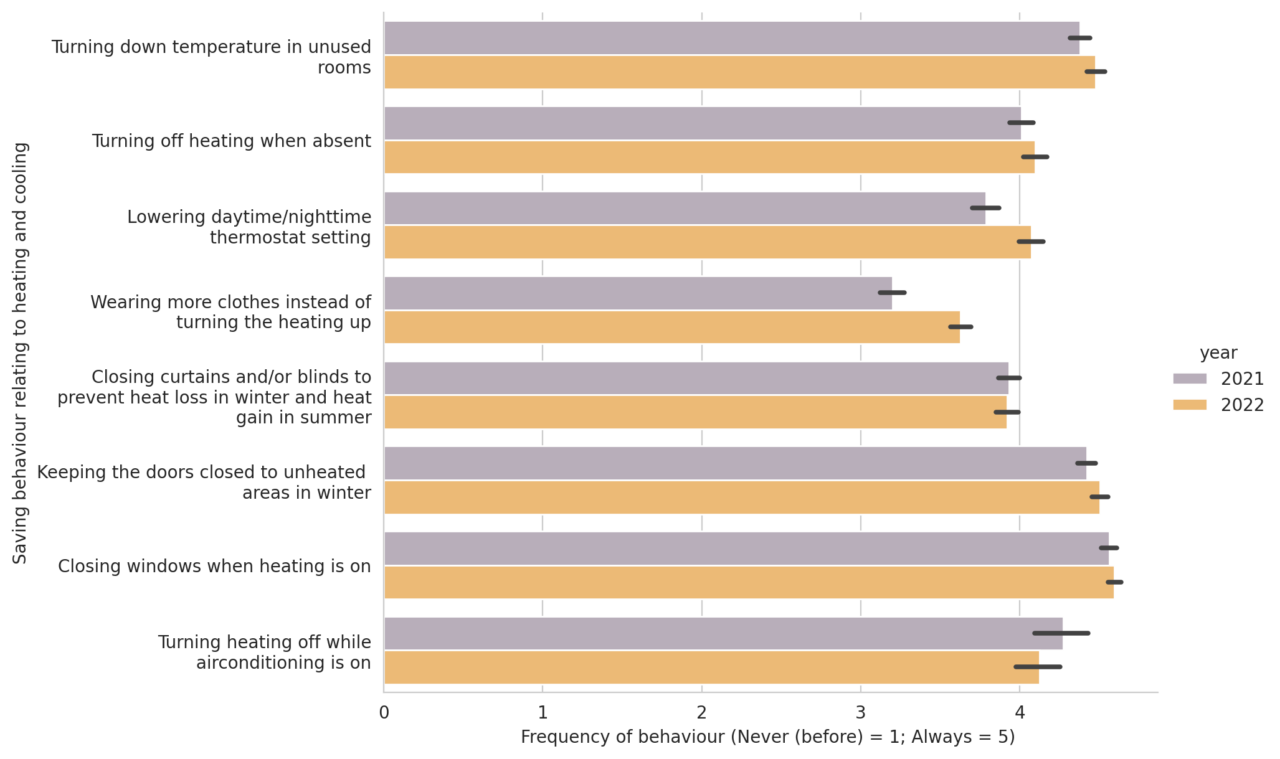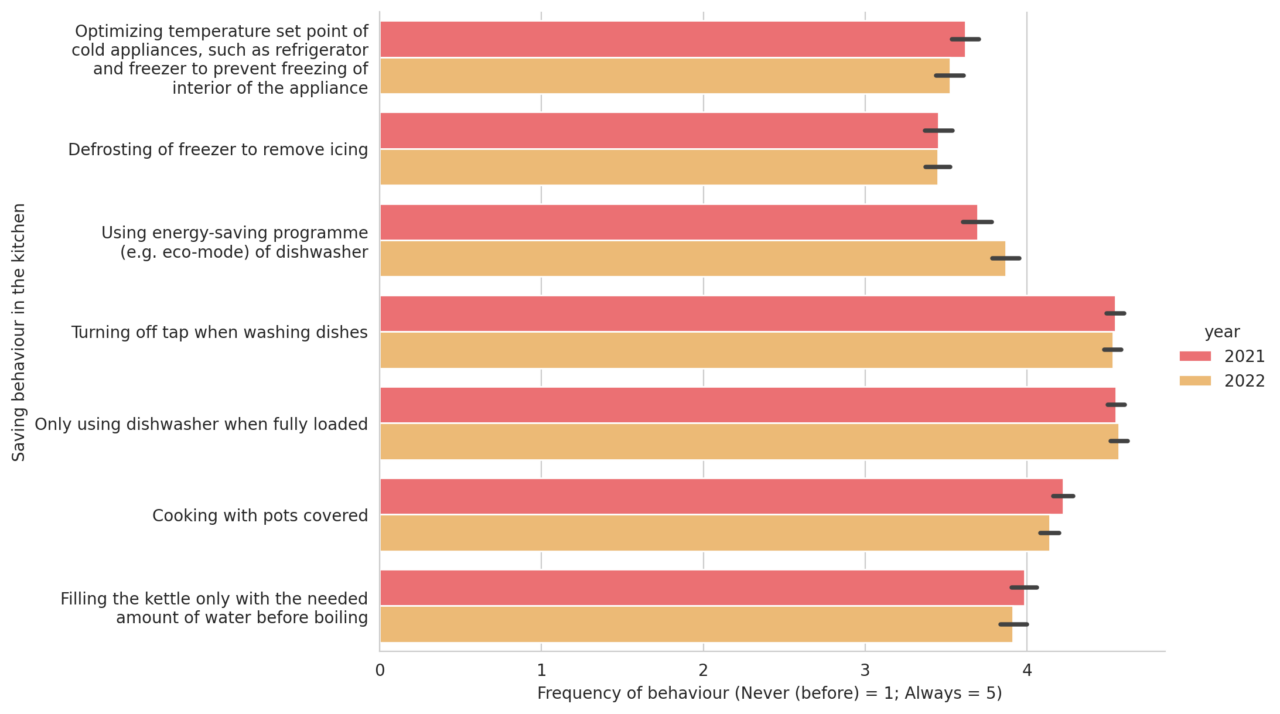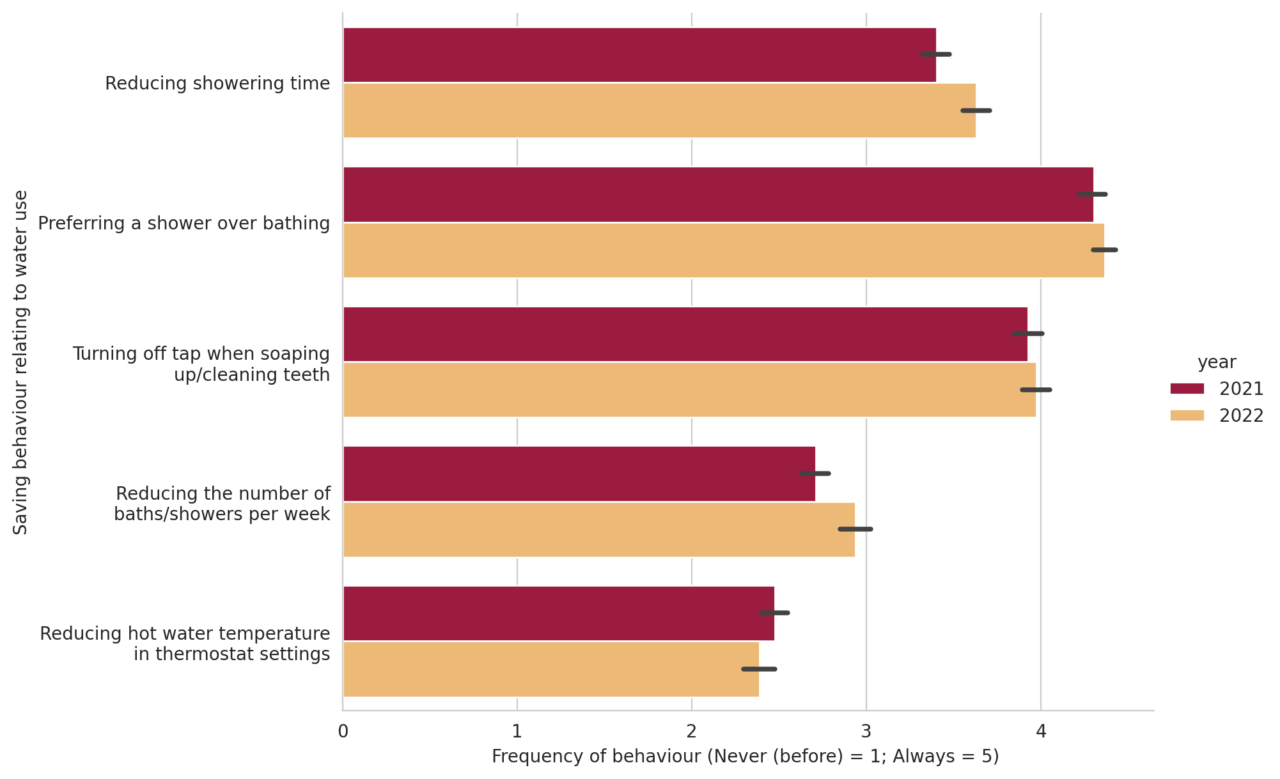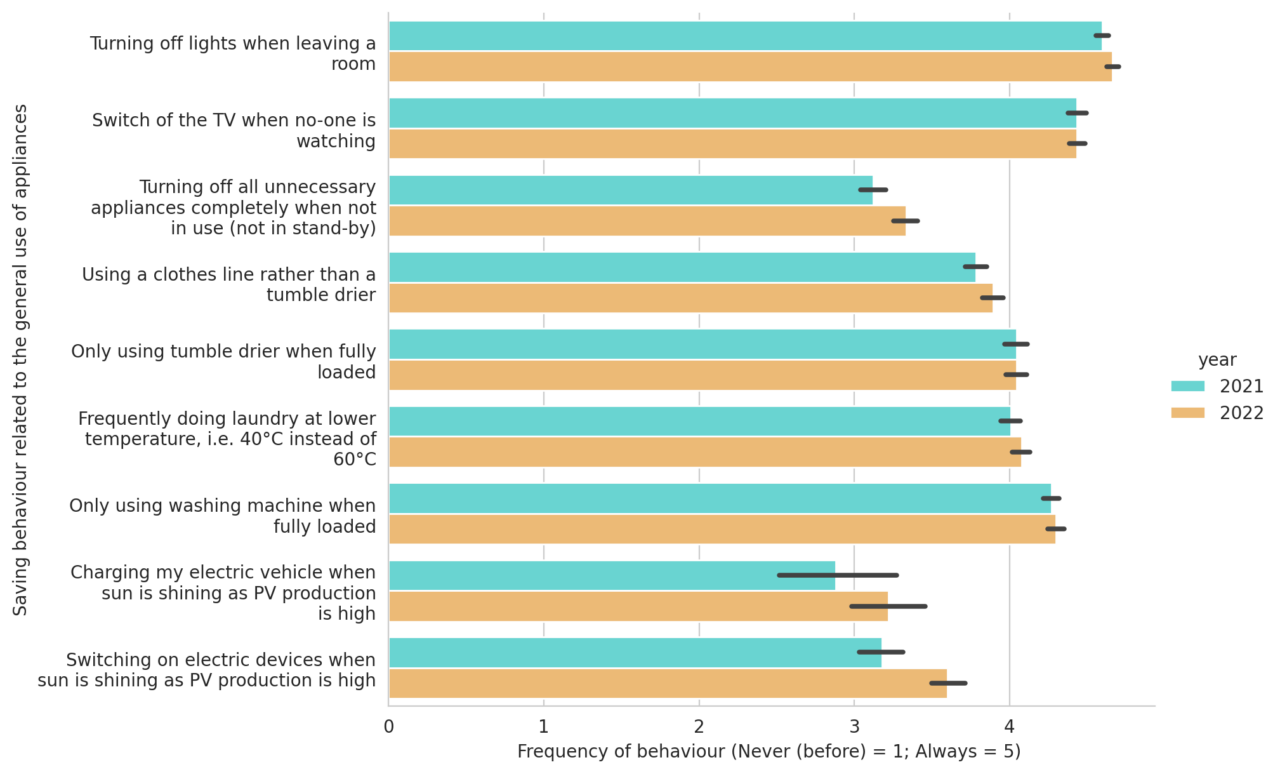Blog-How have habits changed amid the energy crisis? Assessing self-reported energy-saving behaviours in Flanders
An article by Emma Martens and Peter Conradie, imec/UGent
Recently, energy prices have been a preoccupation for almost everyone that pays an energy bill. Only last year,the imec/UGent research group mict investigated how Flemings adapt their consumption behavior in times when energy prices and saving strategies are a hot topic in all news channels (read the previous article). This research is part of the European NUDGE project, which aims to nudge consumers towards energy efficiency through behavioural science. Now, a year later, we want to know which strategies stick, and which habits are hard to break. We asked people how often they engage in certain energy saving activities, including everyday behaviour and habits in and around the house. Two surveys were conducted, one in 2021 (April-May, N = 1133) and one in 2023 (March, N = 1746). For both surveys, we relied on a sample of ±1000 people, representative of the population of Flanders with respect to age, gender and level of education. In general, Flemings have sacrificed a bit of their comfort to save more energy and water, and have embraced solar energy as sustainable and self-sufficient energy source. In this article, we will zoom in on the types of behaviour that have changed significantly, and those that did not change at all.
In the first study of 2021, we saw that people were hesitant to give up comfort to decrease their consumption. When looking at habits related to heating and cooling, about 20% of the respondents didn’t partake in habits such as wearing more clothes or lowering the temperature of the thermostat. However, in our comparison, those habits have increased the most. First, more people said that they choose to wear an extra layer of clothes instead of turning the heat up. Furthermore, a bigger group lowers the thermostat settings often or always for both daytime and night-time temperatures. Interestingly, these strategies were also mentioned explicitly by the Flemish and Belgian government as good strategies to decrease your energy consumption. Indeed, vrt nws highlights lowering the thermostat temperature as one of the most effective ways to lower the energy bills. Additionally, there was an increase in the frequency at which people switched off unnecessary appliances completely (instead of leaving them on stand-by), a habit that was also highlighted in the Flemish press as efficient for reducing your energy consumption.

This focus on reducing the energy bills is also noticeable in the kitchen, where the main change in behaviour was that more people used the energy-saving programme on their dishwasher, once again something that was mentioned as an energy-saving strategy by vrt nws. Other habits in the kitchen such as filling the kettle only with the needed amount of water, turning off the tap when washing the dishes or defrosting the freezer to remove icing, stayed the same. This could be on the one hand because Flemish people underestimate the saving potential of these actions, or because they were not highlighted in official communication. On the other hand, actions like defrosting your freezer take some time and effort, and it might be that the effort doesn’t outweigh the perceived benefits, or that the perceived benefits are not clear.

When looking at water-saving behaviour, most habits stayed the same in comparison to last year. However, there was an increase in reduction behaviour. More people said that they reduced their number of baths or showers per week and people more frequently took shorter showers. The spring and summer of 2022 were particularly hot and dry, and the Belgian government communicated on the importance of saving water. This might have had an impact on people’s intention to reduce their consumption. Other behaviours, such as turning off the tap when soaping up or brushing your teeth did not change significantly. However, more than 80% of our respondents said they were already doing this in 2021, so we could see this type of behaviour as quite established.

Lastly, there was a big increase in behaviour related to solar panels, specifically the habit to switch on electric devices (such as a washing machine) or charge electric vehicles when the sun is shining, and the solar panel production is high. This can possibly be linked to an increase in households with solar panels. In 2022, 100.000 solar panels were installed, more than double the amount of 2021. This means that more households have access to solar energy, which is visible in our data: the number of people that answered not applicable decreased. As for the increase in people charging their electric vehicles, this might be linked to the fact that the European Commission has decided to ban all cars that emit CO2 from 2035 onwards. As a result, a lot of people are consciously choosing electric or hybrid vehicles when switching cars. Moreover, 22% of Belgian employees have a company car, and hybrid or electric cars have more tax benefits than cars with a combustion engine. This has led to a 44-percentage point increase in hybrid cars and a 77-percentage point increase in fully electric cars in Flanders in 2022. Additionally, electric bikes and steps are also increasingly present in Flemish households. Thus, it makes sense that more people engage in this behaviour.

Based on our research results, we can pose that Flemish people were more conscious of their energy consumption, which made them focus more on the smaller actions that can have a big impact. People especially adopted more habits related to reducing the energy consumption – and with it the energy bills – and saving water. This could be linked to the energy crisis related to the war in Ukraine, the long periods of drought during the spring and summer of 2022 and the increase in both instalments of solar panels and adoption of electric vehicles.
Extra information:
- https://www.knmi.nl/over-het-knmi/nieuws/jaar-2022-extreem-warm-zonnig-en-droog
- https://www.europarl.europa.eu/news/nl/headlines/economy/20221019STO44572/eu-verbod-op-de-verkoop-van-nieuwe-benzine-en-dieselauto-s-vanaf-2035-uitgelegd
- https://www.vlaanderen.be/statistiek-vlaanderen/mobiliteit/fietsbezit
- https://www.consilium.europa.eu/nl/policies/eu-response-ukraine-invasion/impact-of-russia-s-invasion-of-ukraine-on-the-markets-eu-response/
